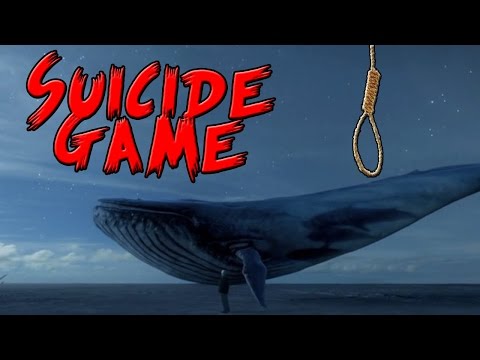Blue Whale Challenge: Hey Mr Scribe, Brush Up Your Archaic Knowledge of Mental Health
MANISHA SHASTRI

BENGALURU: Indian journalist and writer Manu Joseph in a recent article in the Livemint writes that Indians are being told of ‘false and dangerous ideas’ about the causes of suicide.
The article titled Activism as a ‘Blue Whale Challenge’ is problematic and can be challenged at multiple levels, but here I would like to focus on why his take and perspective on mental health is archaic, from the medieval era and highly problematic – even in terms of the language used.
Using a cautionary note prepared in 2015 by a group of organizations from many nations, including the American Foundation for Suicide Prevention and the National Institute of Mental Health and the note on ‘The Recommendations For Reporting on Suicide’ as his line of defence, the author goes on to write about how suicides are a result of psychiatric illness and that social or economic factors must not be attributed to it.
Here, I would like to briefly go into the historical evolution of psychology and the understanding of mental illness. In ancient Babylonia, unusual behaviour was attributed to being possessed by evil spirits or other supernatural forces. The Romans, who laid the foundation for modern day psychology, attributed these unusual behaviours to natural causes. Greek physician, Hippocrates suggested that all psychological disorders resulted from factors such as brain damage, heredity, and imbalance. This view later underwent several changes; mental illnesses were given religious connotations and understood as individuals being punished by demons or devils. This idea further evolved during the Renaissance with individuals like Paracelsus and John Weyer laying emphasis on natural and physical causes.
Present day psychology takes into account Biological, Psychological, and Socio-cultural factors, and the Diathesis- Stress Model. These models look at the various causes of mental disorders; the biological model looking at the role of the nervous system; the psychological looking at the various psychological processes involved such as emotions, learning and cognition and the sociocultural looking at environmental factors, such as disadvantageous positions in society and cultural traditions.
The diathesis-stress model suggests that ‘genetic or other factors may predispose an individual to develop a mental disorder but that the disorder will develop only if the person is exposed to a certain kinds of stressful environmental conditions.’ Not only does the present day approach towards mental illness take into account socio-cultural factors, the World Health Organisation (W.H.O.) in its definition of Mental Health acknowledges ‘ social well – being’ as one of the determinants of mental health.
By implying that suicide as an act is always a result of mental illness and that social, economic or cultural factors have no role to play, Manu is isolating individuals from their context and environment. No individual or community exists in isolation – they all exist in multiple contexts of the social, economic, political, and cultural – and all these contexts govern, affect and decide the choices available to an individual.
By denying that any of these factors have implications, he is doing what he cautions others from doing – oversimplifying the issue and understanding of suicide. The usage of words and phrases such as ‘infected’, ‘mental issues’, and ‘weak’ is another example of how the authors argument lies entirely within the medical discourse on mental health, which views the individual as the problem, absolving the environment and others around the individual of all responsibility.
By claiming that psychiatric illness is the only trigger leading to suicide, the author stands guilty of his own accusation of a ‘wrong diagnosis… made by the elite for ideological reasons’. The best example of the author’s own elite ideology can be found in the author writing with reference to Rohith Vemula’s suicide -‘What if he had received better advice, what if someone had cared enough to tell him that the humanities are luxury streams in which the rich and the suave do better than the poor.’
Mental Illnesses do not appear out of the blue, nor are they merely a result of neuro – chemical imbalance. These ideas were popular before and in the middle ages, but over the years and through studies this idea and perception has evolved and it is acknowledged that psycho – social, economic, political and cultural factors do affect an individual’s mental health and well – being.
Perhaps it would serve the author better to do a little more research on factors affecting mental health and their implications, rather than simply labelling people as ‘infected’, ‘weak’, ‘sick’ or ‘mentally ill.’
P.S: With his views on psychiatric illness, Manu Joseph could make an excellent poster boy for the booming psychiatric and psycho – pharmaceutical industry across the world.



